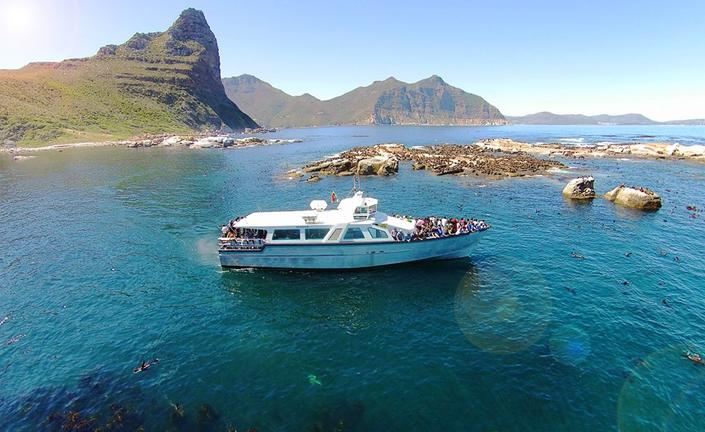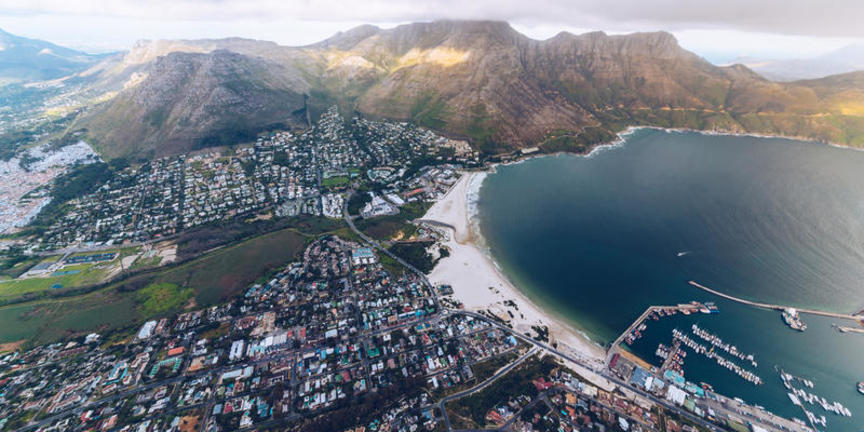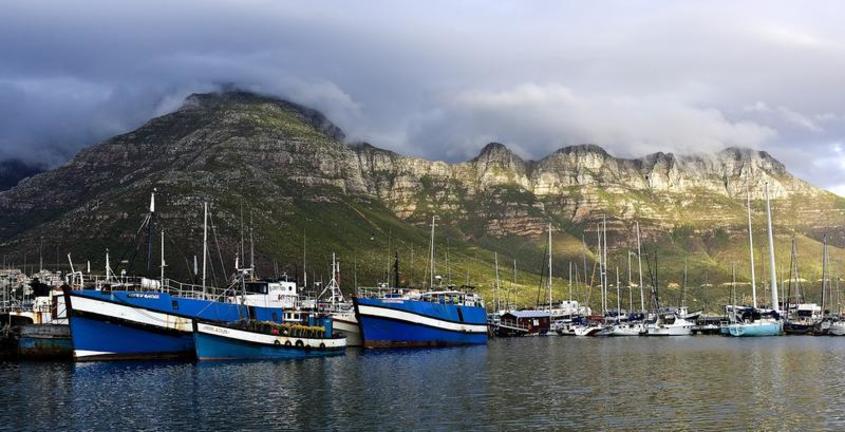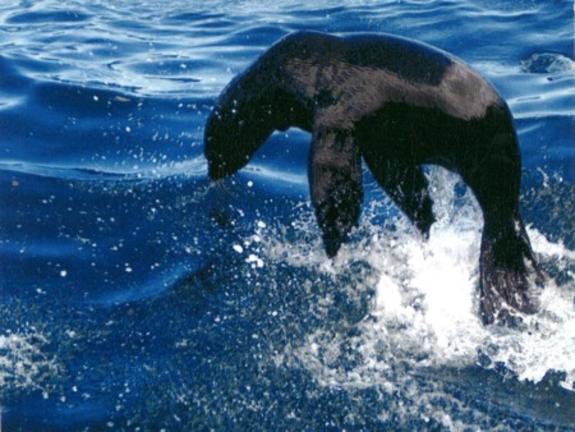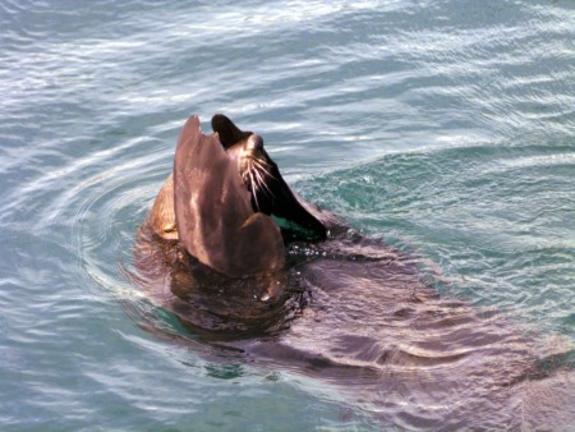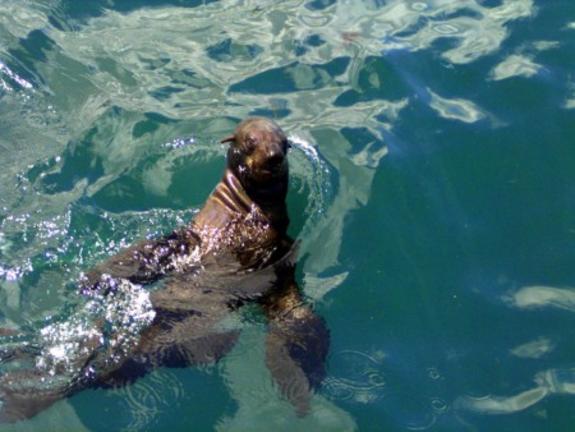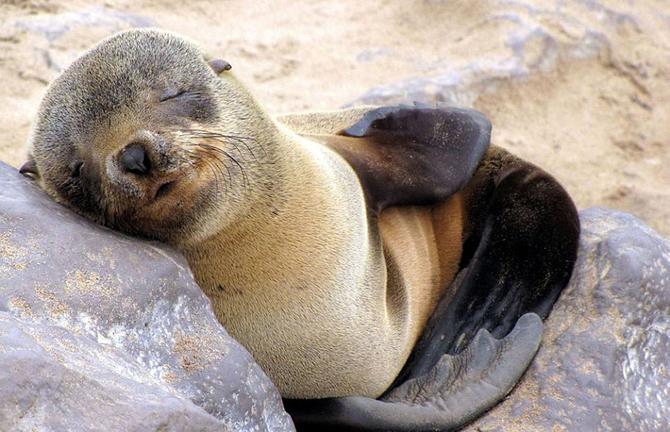Originally a small fishing village, Hout Bay (Wood Bay) or the Republic of Hout Bay as it’s affectionately called by the locals, has a name which dates back to 1653. The town was properly established in 1867 and is nestled in a once-deeply wooded valley on the Atlantic Seaboard between Llandudno and Noordhoek. The ancient, once-huge forests are still in evidence, but only in small, highly protected pockets. At the northern end of Hout Bay Valley, the Orangekloof Forest is the most intact and oldest indigenous mountain forest on Table Mountain.
Hout Bay is a popular day-trip destination for tourists thanks to its old-world charm, colourful multicultural ambience, stunning views, its beach and busy fishing harbour where tuna, crayfish and snoek are the regular catch of the day all make for a delightful experience. The bustling port area has seafood restaurants, craft stores and boating activities as well as fresh fish for sale.
Humans aren’t the only ones interested in the catch of the day. As many as 6 thousand Cape Fur seals reside on Duiker Island, a 40-minute boat cruise from Hout Bay Harbour. This child-friendly cruise is the perfect opportunity to see these exuberant and delightful creatures up close and in their natural habitat. To get there you travel past some of the most rugged scenery on the Western Cape including the bay, the Sentinel and Chapman’s Peak.
Duiker Island is a ‘pick-up’ spot for the Cape Fur Seals. The males congregate here while they wait to ‘come of age’ and breed with the females. The water around the island is far too rough and dangerous for pups forcing the females go elsewhere to give birth. The seals are a popular snack for Great White sharks, and you may be lucky enough to see one or two, as well as whales and dolphins while on your cruise.
